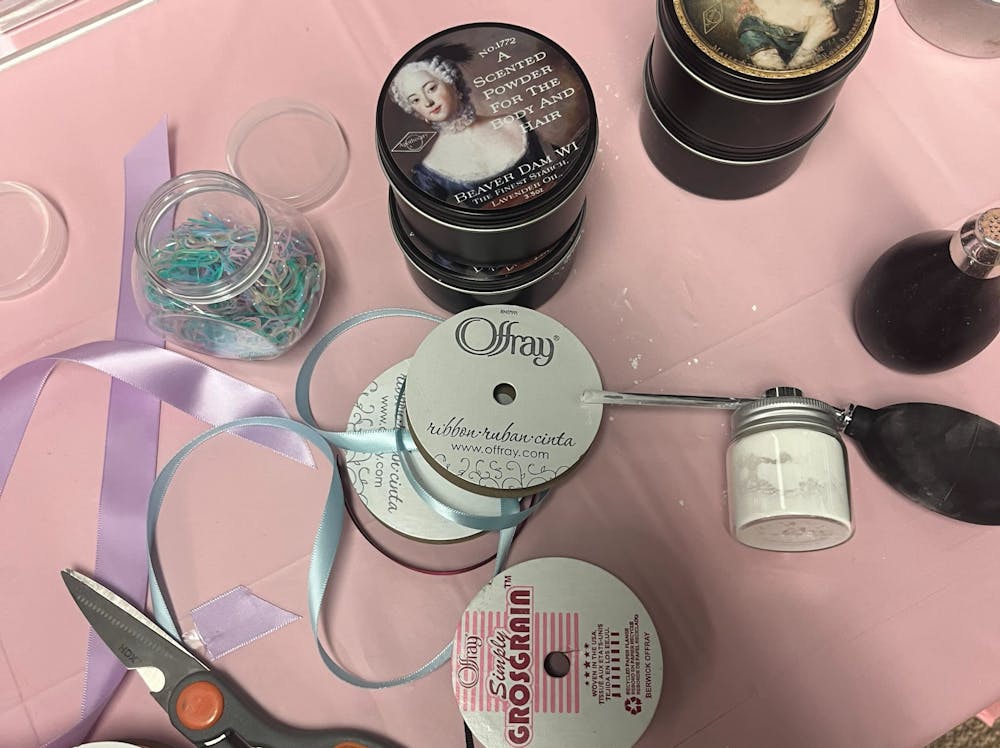On Saturday, the Alliance for Historic Hillsborough put on their annual Revolutionary War Living History Day, better known as “Rev War Day.” At the Orange County Historical Museum, a new exhibit was featured this year revolving around beauty in the 18th century.
Catie Atkinson, the site manager of the Orange County Historical Museum, was the mastermind behind the beauty salon. She said she did research on 18th-century beauty standards and then discovered products that were most similar to the ones from that time.
“It was really fun to research and learn about it, and figure out how to bring it to life in an easy way for modern audiences,” she said.
This is the first year this exhibit has been a part of Rev War Day, and Atkinson said that it has been received well by everyone, especially the kids. Some of the products available were face stickers in various shapes — originally used in the 18th century to cover blemishes, which then turned into a fashion statement — colored hair powder, white face paint and cream blush. Atkinson said that it is interesting to draw the parallels between products from then, like the stickers and hair powder, to products of today, like pimple patches and dry shampoo.
Taylor Osborne went to graduate school with Atkinson, which is how he got involved with Rev War Day. For the past couple years, he has impersonated Charles Cornwallis, a famous British general from the American Revolution.
Osborne also said that Atkinson told him a little bit about her idea to incorporate 18th century beauty into this year’s Rev War Day. He said that he has been reenacting history for close to a decade and had never seen something like this.
“So, looking at the niche, little of 18th century material culture and trends, it’s stuff that blows people’s minds," he said. "So, it’s an interesting way to look at the history."
Atkinson said that her favorite products from the 18th century are the face stickers. She learned in her research that women during the American Revolution used the stickers as a way to communicate if they were Whigs or Tories, or if they were for or against the revolution.
“I just saw the one off-reference and didn’t dive into it deeper, but thought that was interesting as a way for women who wouldn’t normally express a political opinion, to express it in a very subtle way,” she said.




